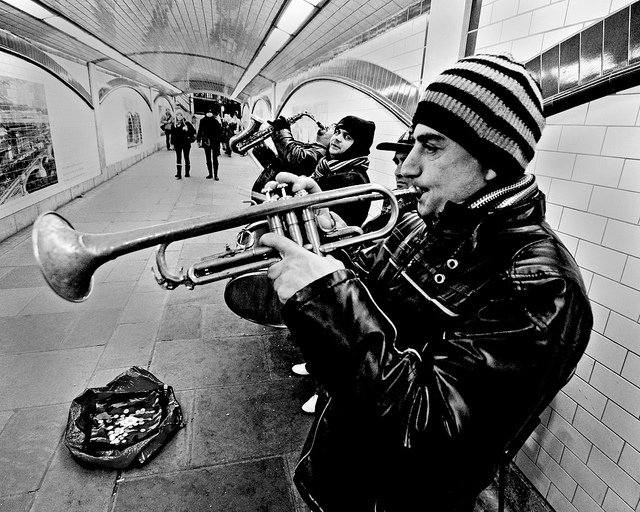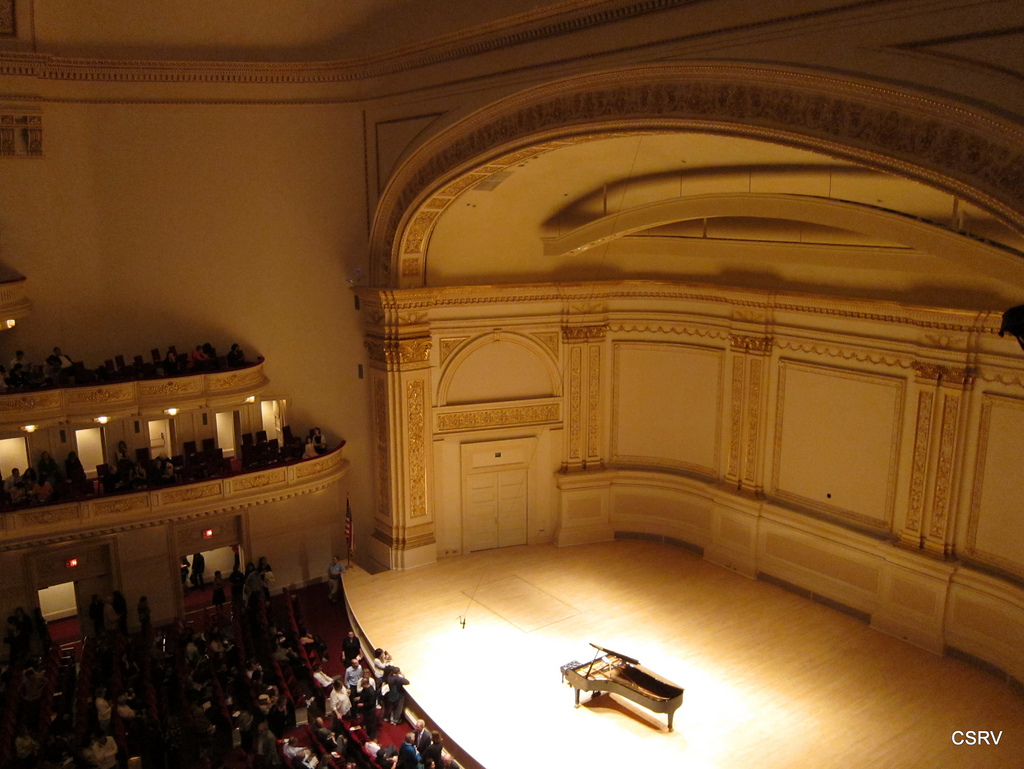
Used under Creative Commons License
Originally published May 5, 2011 on Sound Education Blog.
Performing, listening to, and enjoying great music are their own rewards. But most people recognize that there are many additional life lessons learned while studying music. We discussed these lessons in a 2010 #MusEdChat collaborative session on Twitter. This series of blog posts contains my reflections on that discourse. Thank you to those who participated in the conversation, especially the one quoted below.
Music Life Lesson #12: The Love of Music
For the past six months, I have been writing about music’s life lessons. I must say I did not anticipate this project spanning half a year and had no idea when I began how enjoyable this would be to write. When I first heard the topic choice for MusEdChat back in mid-October (read full transcript here) I thought it was brilliant and immediately began constructing a list and backing arguments. I saved my favorite tweets from the very active conversation and began grouping them into lessons afterward. I had initially intended on doing a six part series, but soon saw that the scope was much wider and expanded to 12. This final entry is perhaps the most important because without it the others do not matter: In its study, we learn to love music.
From MusEdChat:
@rizzrazz: For me personally, just loving my craft was more important than anything. I can see yearly progress as a teacher & musician.
We Are Music
Music is more than a pass-time or a hobby; it is more than an art. Music is embedded within the foundational core of mankind. I do not believe there has ever been a culture on the earth that did not create and embrace music of some sort. There is a clear reason for this: we are musical beings. The resonance of music physiologically affects us. Our bodies themselves are resonant. Being in the direct presence of a musical performance causes a noticeable physical reaction. It is one of the reasons live performances are so much more powerful to the listener. Of course there is also a strong emotional response as was discussed in a previous post. Music experienced in a purely physical manner can be powerful. I would say that this is a common experience for casual listeners of popular music. People enjoy and even need music in their lives because of the physiological reaction that they have with it. However, when music reacts with us on an emotional level our embrace of it and need for it strengthens. Many experience a stratum even beyond this when music takes on a spiritual dimension. At this point, we are living a core element of our being that is simultaneously felt physically, emotionally, and spiritually. The intensity this produces internally can not be overstated.
In his masters thesis for the Massachusetts Institute of Technology “On the Border Between Sound and Music“, Shahrokh Yadegari quotes Russian abstract painter and art theorist Wassily Kandinsky on a similar distinction in the experience of visual art:
On this point of view, in Concerning the Spiritual in Art, Kandinsky explains the effect of colors in the field of vision as follows:
“If you let your eye astray over a palette of colors, you experience two things. In the first place you receive a purely physical effect, namely the eye itself is enchanted by the beauty and other qualities of color.”
And further he states:
“But to a more sensitive soul the effect of colors is deeper and intensely moving. And so we come to the second result of looking at colors: their psychological effect. They produce a correspondent spiritual vibration, and it is only as a step toward this spiritual vibration that the physical impression is of importance.”
This is all to say that music is truly an inescapable component of our make-up. (And who would want to escape it, anyway?). From the earliest age, we are drawn to music. We are attracted to the use of harmony and rhythm, of melody and texture. We love it because it is who we are.
As stated earlier, I believe people experience music at different levels. Even someone who purports to dislike or even hate music is compelled to tap a finger or a toe to a catchy beat. We learn that the higher experiences are the better ones. As music teachers, we have the privilege of moving our students along this spectrum and participating in their growing acquisition of love for music.
Socially Making Music
Part of what we love about music is that it is so often a social endeavor – both in listening and creating. I play in three ensembles and while I enjoy performances, I really enjoy rehearsals. I love to make music and love to do so with my friends. While I enjoy practicing alone (is this weird? it shouldn’t be.), I receive a great amount of fulfillment in the artful assembly of melody and counterpoint, harmony and dissonance, the raucous and the tender.
The lesson is one of shared achievement, camaraderie, having a place to belong. It is about communicating with something more primal and stronger than spoken language.
A Change of Outlook
Because of it’s close connection to our psyche, we often use music to affect our mood. And it works. An emotion can be felt by a composer who then writes it down musically. A performer brings the printed page to life interjecting his or her personal perspectives along the way. The listener reacts to the music in a physical, emotional and/or spiritual manner and is changed due to this interaction. We learn over time to utilize music to help us relax, feel better, process anger, etc. I did a quick internet search for “why do you love music” and looked through a Yahoo! Answers page on the topic (see here). I found the answers to be very interesting. They seem to be primarily school age respondents (in other words: they are our students) and the replies generally all stated they loved music because of the way it made them feel.
Conclusion
There are certainly powerful reasons music becomes such an important part of a music student’s life. It is a discipline that connects to their core. It connects to their feelings. It gives them creative power. It allows them to share intimately without having to talk or “open up” in a traditional manner. It is a challenge. It is fun. And these are also the reasons we teach music.
This is part 12 of a 12 part series.


